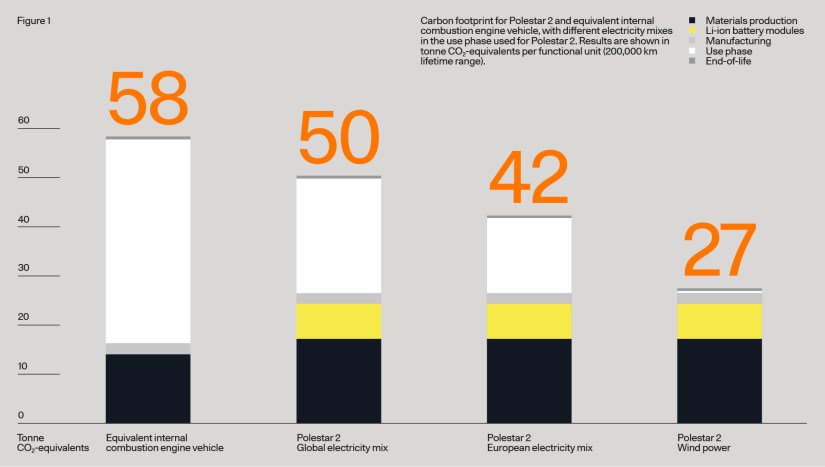Volvo’s electric Polestar brand is quickly climbing the ranks of the best eco-friendly vehicles. The all-electric Polestar 2 has a fully vegan interior. The company has already announced that future models will be sporting natural and recycled materials to reduce waste and reduce the vehicle’s weight.

Emissions have always been a number one concern for eco-friendly car manufacturers, but as Polestar has shown, it is only part of the equation. Materials and the production process are both important factors when it comes to making a vehicle that is friendly to the environment.

Thinking Outside The Box
Polestar has been experimenting and investigating several different material options that will provide an eco-friendly vehicle and provide sustainability.
A material made from flax by a company called Bcomp is a contender in the running for the vehicles’ interior. Flax is a good crop for crop rotation programs and is sustainably grown but has no impact, nor does it compete with the food crops.
Another option looked at is a “3D-knit” material, which is a single thread that is used to make three-dimensional shapes. The material is made from recycled plastic bottles. This material is already used in the fashion industry, and due to the composition of the material can be made exactly to size, producing no waste.

Other ideas that are being investigated include using recycled corks to make PVC interior components and using Nylon from recycled fishing nets to manufacture the vehicles’ carpets.
A Tough Race for #1
Other manufacturers are also making enormous strides in reducing emissions. Companies such as Fiat, GM, and Fisker are increasing their vehicles’ sustainability in many of the same ways.
It may be a tight race for best as companies strive to reduce or eliminate emissions from the vehicles and manufacturing process and increase the sustainable content inside their cars. Still, Volvo’s Polestar brand is one of the top contenders.
